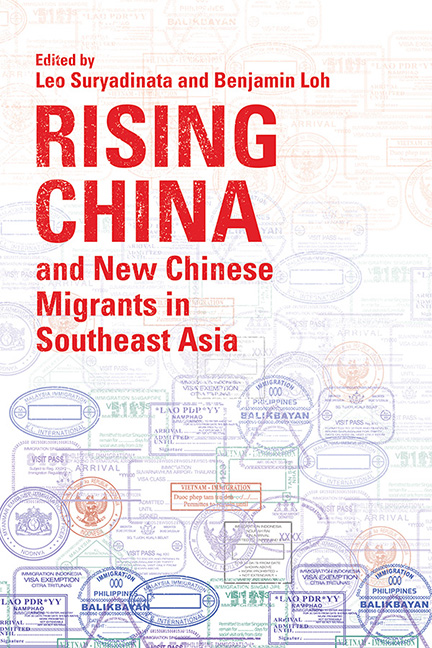Book contents
- Frontmatter
- Contents
- About the Contributors
- Introduction: Rising China and New Chinese Migrants in Southeast Asia
- Part I General Overviews on Rising China and Xin Yimin
- Part II China’s Soft Power, Xin Yimin and Local Communities
- Part III New Chinese Migrants and Local Communities
- Part IV New Chinese Migrants and Local Economies
- Index
10 - Xin Yimin in Indonesia: A Growing Community That Faces New Challenges
Published online by Cambridge University Press: 09 January 2024
- Frontmatter
- Contents
- About the Contributors
- Introduction: Rising China and New Chinese Migrants in Southeast Asia
- Part I General Overviews on Rising China and Xin Yimin
- Part II China’s Soft Power, Xin Yimin and Local Communities
- Part III New Chinese Migrants and Local Communities
- Part IV New Chinese Migrants and Local Economies
- Index
Summary
The issue of New Chinese Migrants (xin yimin, 新移民) has been prolifically discussed globally since Deng Xiaoping introduced market-based economic reforms and greater engagement by China with the global community. Some scholars argue that this migration mainly went to Western developed countries rather than to Southeast Asia, with the exception of Singapore. Understandably, English language scholarly work on xin yimin has tended to focus on this phenomenon in developed countries, and less attention on the topic has been paid to Southeast Asia, at least until recently.
According to the International Organization for Migration of the United Nations (UN), ‘migrant’ is “[a]n umbrella term, not defined under international law, reflecting the common lay understanding of a person who moves away from his or her place of usual residence, whether within a country or across an international border, temporarily or permanently, and for a variety of reasons”.
Xin yimin, or new Chinese migrants, are further defined as migrants from mainland China (and to a much lesser extent from Taiwan) who stay in another country for more than one year, some with the intention to stay longer or permanently.
According to a rough estimate, there were 10.3 million xin yimin across the world in 2008, of which about 8 million came from mainland China. Of those from China, only twenty per cent went to Southeast Asia. It is difficult to get accurate figures on this since almost no country in Southeast Asia has released any relevant figures. According to Indonesia’s Labour Minister, Hanif Dhakiri, there were 24,800 Chinese workers in Indonesia in 2017, the majority of whom were classified as skilled workers. However, many argue that the real number may be double that.
This chapter will focus on the xin yimin in Indonesia, an undertaking that forms part of my larger project on Chinese migration in Southeast Asia. There have been copious descriptions of the diverse nature of Chinese migration into the region, but statistics have been less forthcoming, both as a result of the sensitive nature of the subject and the uneven data collection of country-level surveys.
- Type
- Chapter
- Information
- Rising China and New Chinese Migrants in Southeast Asia , pp. 183 - 193Publisher: ISEAS–Yusof Ishak InstitutePrint publication year: 2022



